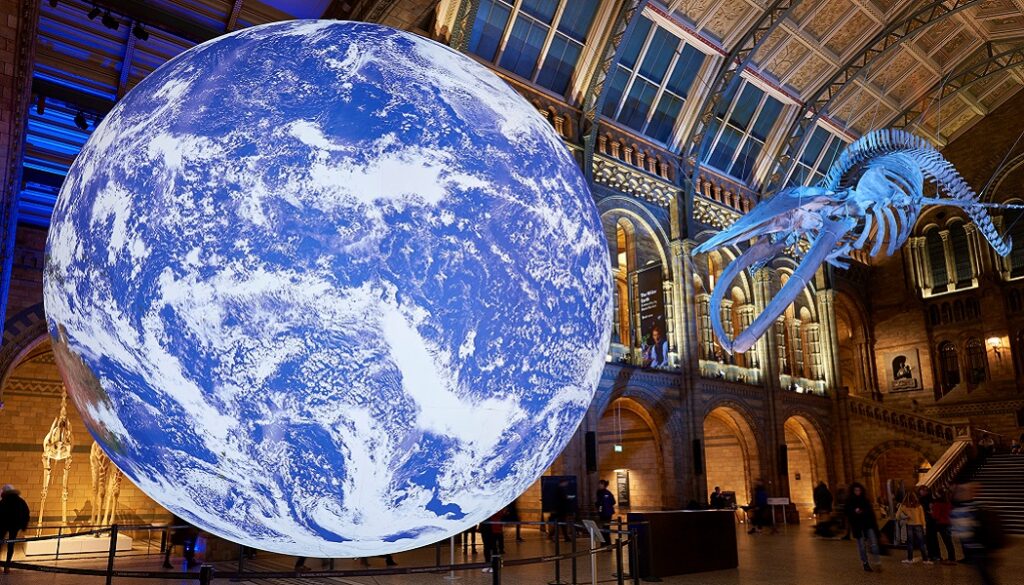Unravelling ESG and B Corp
31.03.23
By subscribing to our newsletter, you give us permission to email you with news of our work and events, plus opportunities for volunteering, challenges to take part in and special offers in our shop. You can unsubscribe any time by clicking the link in our email footer.

31.03.23

Read time – 10-11 minutes
How we as individuals decide to run our businesses will be very much guided by our own perceptions of social, environment and governance.
ESG is not just a tick box exercise required to keep stakeholders happy. As leaders, employees and stewards of our planet, we need to make the most of creating the best possible business structure we can. Using the triple bottom line model of People, Planet & Profit, means we’re considering the people who work for us, the supply chain, the product lifecycle and the environmental impact. This includes the office staff, the delivery drivers, the factory workers, the amount of water used to grow the materials our products are made from, the electricity used, the accountability of the materials used, where these resources come from and the long term effects of the business on our communities and our surrounding environment. Not just on the business’s immediate location, but across all communities who are part of the total supply chain.
Essentially, it’s now bad business not to have a social purpose.
There are a couple of prime ways that businesses are creating impact in the UK and beyond. Accreditation processes and recognition for the actions they are taking in environmental and social responsibility are driving societal change. ESG and B Corp certification are the two predominant key phrases and accreditation schemes in the UK, which help to propel companies to be authentically purpose-led. Authenticity – that’s the key!
What exactly is ESG?
ESG stands for Environmental, Social and Governance. It represents a set of standards measuring a business’s impact on society, the environment, and how transparent and accountable it is.
According to the CBI (Confederation of British Industry), two-thirds of investors take ESG factors into account when investing in a company, meaning ESG has the potential to grow your business while benefiting the environment and community. So ultimately ESG should really be taken very seriously, it’s much more than the latest trend. Implementing ESG standards can have a real, tangible benefit to your business.
According to Procurious, when it comes to consumer purchasing trends and ethical sourcing, a recent study into consumer intent carried out by OpenText, found that 9 in 10 (88%) of global consumers surveyed would choose to buy from companies with ethical sourcing structures in place over ones that did not.
Fundamentally, there is a huge desire from the consumer market for companies to be transparent about their ethical sourcing. One such company that can assist businesses to be more transparent about their supply chain, is Provenance. They enable retailers to differentiate and meet fast-moving ESG standards and more easily manage sustainability claims across their portfolio. For the consumers, Provenance empowers citizens to cut through the greenwash and find brands and products that truly align with their values. Whats not to love about this service? I for one, will do research into brands before I buy a pair of jeans from them!
An ESG strategy can demonstrate that the company is reducing risks such as adapting manufacturing processes to meet future environmental legislation. This makes the company future proof, more likely to experience growth and a far better business model to invest in.
According to the British Business Bank, this is what each area of ESG focuses on:
Environment
The environmental aspect of ESG focuses on how the business minimises its impact on the environment. It covers the business’s products/services, the supply chain and operations.
Social
Organisations can positively contribute to fairness in society, investing in fair and equal opportunities and conditions for employees, people working in the supply chain, and local communities. Having a positive, proactive and inclusive workplace culture can attract talent and assist in talent retention.
Governance
Governance refers to the processes of decision-making, reporting, and the logistics of running a business.
It also looks at the business’s ethical behaviour and its transparency with stakeholders about its activities.
Why do businesses need to consider ESG?
There are a multitude of reasons why ESG is essential for any business and its longevity. Lets start by looking at inequality.
The World Inequality Report 2020 highlighted that the poorest half of the global population barely owns any wealth, possessing just 2% of the total.
While the richest 10% of the global population own 76% of all wealth.
The researchers found that the world’s 52 richest individuals saw the value of their wealth grow by 9.2% per year for the past 25 years, well above less wealthy social groups.
The report also importantly identified that women’s share of total global income from work was less than 35%, up from near 30% in 1990 but still short of parity with men.
When it comes to the environmental effects of business on the climate, it’s well known that factories negatively impact the environment through air pollutant emissions, toxic waste disposal and water contamination. Factories are also the major offenders when it comes to greenhouse gas contributions. Factories alone are responsible for nearly two-thirds of the emissions to blame for global climate change. Major fashion brands including H&M, Inditex (the owner of Zara), Marks & Spencer and Tesco have been linked to polluting factories, according to a report by the Changing Markets Foundation. One of the key fabrics associated with this pollutant is viscose. Touted as a sustainable alternative to cotton or polyester, Viscose is often used as a cheaper and more durable alternative to silk, most commonly added to skirts and dresses. 10 manufacturing sites in China, India, and Indonesia were found to have caused severe environmental damage including water pollution from untreated contaminated waste, and air pollution. At the time that this report came out in 2017, the Guardian contacted the mentioned brands, of which some acknowledged that the impacts of viscose production are an industry-wide problem. They said they were exploring ways to produce more responsibly. Factories use water during the manufacturing process for many reasons, including production, cleaning, cooling, dilution and sanitation. Instead of releasing wastewater to sewers, storm sewers and worse, rivers, factories can investigate ways of using less water in the first place and recycling water inside their plants. Water companies and water resources consultants can perform water audits to offer more detailed advice.

What about BCorp?
What does becoming a Certified B Corporation even mean? For starters, it’s not about green-washing. It’s not a quick tick in the box and move onto the next thing. Joining the B Corp movement, means joining a new class of mission led businesses in the UK and globally to make a real, genuine difference.
What is BCorp and how does it work?
Certified B Corporations, or B Corps, are companies verified by B Lab to meet high standards of social and environmental performance, transparency and accountability. B Lab manages the certification process. The word B Corp was originally derived from the US corporate ideology of a benefit corporation, however through an organic global process, it can now mean many things to many people.
As stated by B Corp, the world’s most challenging global problems cannot be solved by governments and nonprofits alone. By harnessing the power of their business, B Corps commit to legally positively impacting all stakeholders – workers, communities, customers, and our planet. Amending company articles and completing a scored impact assessment is just the beginning.
Once a business is B Corporation certified, this can have a positive impact on many dimensions of your work. It can provide a shortcut for clients looking to engage your services or purchase your products, as they automatically know that their values align with your business.
However BCorp is actually in the process of changing the way it works.
Currently global governments are failing to respond with sufficient urgency to the climate emergency and widening social inequality, and the current cost of living crisis demonstrating how our most vulnerable citizens are most likely to pay the price for institutional inaction. The IPCC report released last week during the UN Water Conference states clearly that, taking effective and equitable climate action will not only reduce losses and damages for nature and people, it will also provide wider benefits, underscoring the urgency of taking more ambitious action now to secure a liveable sustainable future for all.
Recognising that more needed to be done, over the past two years, B Lab Global has embarked on a project to revisit what being a B Corp stands for, and what certification should look like in the future. The outcome of the B Corp re-design work to date moves B Corp certification away from a single verified score. B Corp believe that to demonstrate the leadership needed for the future of purposeful business, B Corps must meet minimum requirements across ten topics in order to achieve B Corp Certification. These topics are:
A set of revised requirements have now been drafted by BLab and are open for public consultation.
This makes a lot more sense to us here at Frank Water, because instead of a business achieving B Corp certification by scoring extremely high in some areas such as Worker Engagement, but not in other areas such as Climate Action, the new process means businesses must work to achieve and improve across all ten topics. This allows far more transparency and accountability. It also helps those who support B Corps to know the company they are purchasing from really are working hard across all aspects of their company.
Interesting points to note about B Corp’s current membership:
Getting started – the vast majority of companies would consider themselves to be ethical. The real questions are how ethical, can they prove it, how do they compare against others and how can they improve?
This is where the free B Impact Assessment tool can be of real value. It’s a comprehensive framework that is suitable for any company of any size in any industry. There is a lot of help out there from trained B Leaders to support the completion of the assessment which helps to educate, challenge, encourage and inspire.
Andy Hawkins, a trained B Leader at Business On Purpose, has helped over 250 companies with the process and has seen first hand how it can highlight valuable insights.
Andy’s a true advocate for the B Corp movement, he says “it’s not perfect but it is certainly a great way to take a realistic look at how a company is doing and how it can best develop.”
This brings us to a really important point about the current membership of B Corp. B Lab UK’s Head of Growth, Annie Olivier, and Joanna Adjetey, their Customer Success Coordinator, are forming an Equitable Growth Advisory Group to design, test, and evaluate different initiatives to ensure marginalised groups feel able and equipped to join the B Corp community. B Lab have also recently partnered with Hatch Enterprise, recognising their deep knowledge and understanding of how to welcome leaders of colour into the B Corp community. As a collective, we need to raise aspirations and raise awareness amongst underrepresented groups of businesses to become part of the B Corp movement.
Friends and supporters of Frank Water, Skylark Media, a woman-led video production agency, who are on a mission to help sustainable and ethical brands communicate their purpose to the world through video are proud to be a certified B Corp. Nina Postans, Head of Marketing, had this to say about their own B Corp journey.
‘So many businesses are keen to state they have a social purpose or that they are environmentally-friendly. But they don’t emphasise ‘how’. How do you underpin this and ensure that those values are upheld? That’s why B Corp and ESG are so valuable – they hold you to account, not only encouraging you to evidence your claims, but to better them going forward. Skylark has always been about communicating environmental solutions through the power of video.
We wanted to work with Frank Water because of their work that they do not just for communities, but on a global scale. Their research into behaviours and technologies that affect access to water, sanitation and hygiene can ultimately influence on a macro-level, improving the global water crisis. We’ve created animations with Frank Water to explain the science behind how they work, and supported the team on various fundraising initiatives including the annual paddleboarding challenge! The global water crisis will affect us all in the future so this is a cause that we can get behind.’
Why should a business carefully consider its environmental impact?
Here at Frank Water, we’re very much interested in the environmental impact of businesses.

Prof Richard Herrington, Head of Earth Sciences at the Natural History Museum, talks about our insatiable appetite for the latest technology and how the ever growing demand for electronic devices, such as laptops, mobile phones, cloud based voice devices such as the famous Alexa, even car charging batteries, solar panels and more are putting increasing pressure on supply chains and most importantly our planet.
‘I think most people do not have any idea of the range and scale of metals and minerals that are used to make electronics,’ says Richard. ‘We’ve found use for them in computers, cars and all kinds of machinery – it’s technology that we didn’t have 15 or 20 years ago that we now take for granted.’
‘It is really important that we all understand where the raw materials come from, that metals and minerals are in the Earth where nature puts them. They don’t come from a factory, and the supply is dispersed around the world where sometimes business and environmental practices aren’t the best.’
The most commonly used non-renewable sources are coal, natural gas, oil, and minerals, which are mostly used in the petrochemical and solvent industry. Silica, an element found in quartz, is used to make chips and microprocessors in mobile phones.
However there is hope for those companies willing to drive change and make a real difference to the extremely worrying outlook. Companies and governments must lead on this change. They must reduce emissions and they must consider their water usage in every step of their processes. Read more about our latest partnership, creating a collective water stewardship mapping methodology to develop accessible and inclusive tools for best practise in water management.
When it comes to analysing water usage, these are some key questions a business should consider:
This is a good starting point to really get a better understanding and picture of your business’s water usage. We’re talking about re-designing and re-thinking business, because right now the way we manage our consumption of products and production of products is unsustainable.
Finally, a key point to take away from reading this blog, is that the culture of ESG and B Corp should be embedded in your company’s values and ethos. It isn’t a one-off accreditation process, but an effective, meaningful, living and breathing on-going process.